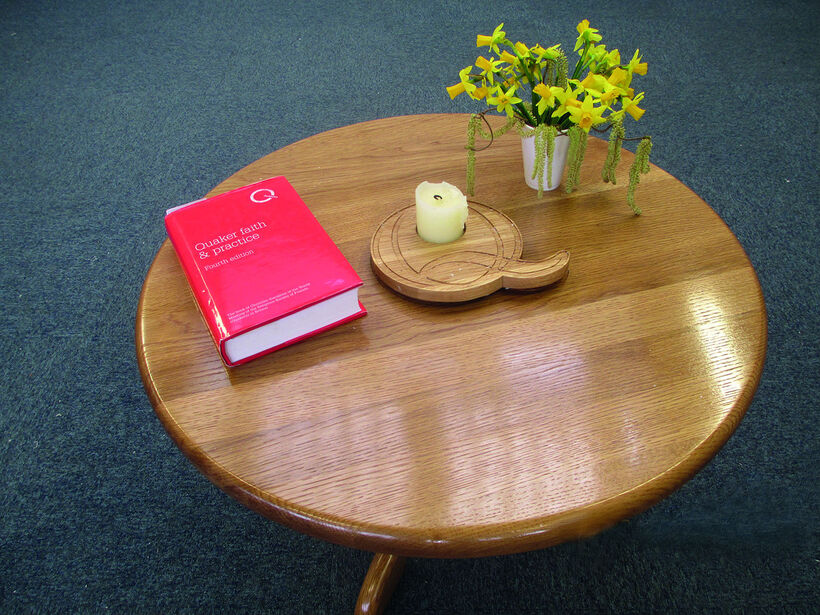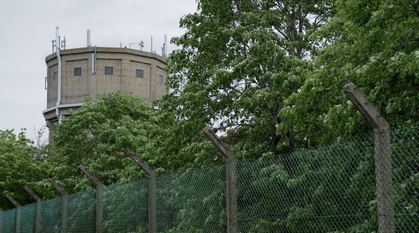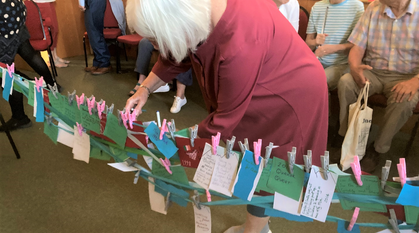Could you be a prison chaplain?
Quaker prison chaplains provide spiritual support and friendship to prisoners and staff – and we need more of them in British prisons says Marleen Schepers.

In the early days of the Quaker faith many Quakers were imprisoned for their beliefs. Ever since, there has been a continuing Quaker concern for prisoners, those who work in prisons and prison conditions.
Quaker prison chaplains (QPCs) and visitors are one aspect of this. Chaplains work within multifaith prison chaplaincy teams to offer spiritual support and friendship to prisoners and staff of all faiths and none, reaching out to some of the most vulnerable people in our society when they are very often alone and unsupported within the prison environment.
In addition to their other tasks, many Quaker chaplains have started regular 'quiet times' for silence and reflection, usually supported by fellow Friends. One example of this comes from QPC Judy. She has been running weekly Silence Inside sessions – "a half hour of quiet time followed by fellowship and refreshments" – for three years. They have grown a dedicated, and diverse, following.
"Our meeting has been multifaith from the outset, following a pattern of Quaker-led groups in other prisons," says Judy. "Our group is more socially, culturally and age diverse than any I have worshiped with outside prison."
Silence Inside marked its three-year anniversary by commissioning an oak table [pictured above] from a Buddhist member of the group that was crafted and polished by him in the prison's woodwork shop.
But while they may be well received in many prisons, numbers of QPCs are dropping. Over the last two years we've gone from 77 to 67, who are active in 84 out of around 110 prisons in Britain. We need to grow these numbers to meet demand, and that's why we're looking for more people who would be willing to take on the role.
If it might be for you, or someone you know, then consider our next training taking place 31 May to 2 June 2019 at Woodbrooke in Birmingham. It will cover the practicalities of working in a prison and the spiritual aspects of being a Quaker chaplain, as well as the importance of developing a support network.
Or, to find out more about prison chaplaincy, have a look at these three films from the Welcome Directory, an organisation working to help faith communities welcome and support people leaving prison.
A chaplain's story: Ruth
“I have listened, laughed, cried, sympathised and empathised with the men and staff in prison, but it was only in April – a year since I began the role – that I really found out why I wanted to do this.
A young man had died in the prison. He had been coming to the quiet group I and some Friends hold every week. Some of his friends still attend. I was asked to do a memorial service for him, only because I asked Chaplaincy if we were having one, so I had inadvertently volunteered myself.
I knew him quite well, us two Welsh people in a Welsh prison. I once sang the national anthem to him through his locked door when he was self-isolating and in a deep depression. He said it made him smile.
The memorial service had, at its heart, a short Quaker silence. This silence was intense and full of deep meaning. It was held by the 50 or so men and staff present; a precious and sacred moment for us all truly gathered there.
At the next quiet group session, one of the older men said that the very fact that a man was remembered this way made him feel that he, himself mattered and that he hadn't felt that he had mattered to anyone for the 28 years he had been in prison. That gathered silence for the young man and that ministry given by the older man are the reasons I am a chaplain. People matter."


